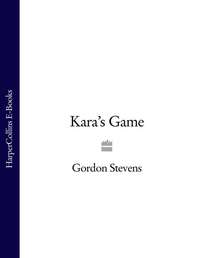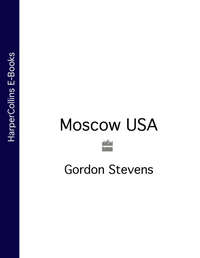
Полная версия
Peace on Earth
He shut his mind off and opened the first box.
At eight thirty, precisely according to the schedule he had mapped out earlier, he finished the box. At eight forty-five his driver dropped him at the reception and continued to Pimlico where he left the two remaining boxes at the minister’s London flat.
Kenshaw-Taylor stayed at the reception until twenty minutes to ten. Pimlico is five minutes from Westminster by car, fifteen by foot. When the Foreign Minister arrived at the flat it was eleven thirty.
The temperature in Rome was minus three and falling; it was also wet, the blanket of rain sweeping across the runway, sounding like the roll of kettle drums as it cascaded off the metal roof of the terminal building.
The TWA jumbo was thirty minutes late, delayed by an air traffic control dispute. Abu Nabil hurried through immigration and customs, showered, shaved and changed his clothes in the gents’ toilet, made a telephone call to the hotel in the city centre explaining that he had been delayed, and was asked to attend as quickly as he could. On the cab rank outside he picked up a taxi, told the driver there was an extra tip for him if he could get to the city centre in record time, and settled back into his seat. The traffic was heavy, he did not feel it was the best preparation for the meeting ahead.
He arrived at the hotel thirty-five minutes later, tipped the driver well, and was shown immediately to the suite on the fifth floor. Sheikh Saeed Khaled was waiting. Nabil apologised for being late, Khaled in turn apologised that he had little time to spare that day and had to leave the hotel for an appointment in thirty minutes. Breakfast arrived two minutes later.
Whilst Khaled poured them both coffee they discussed the outline of their London meeting, concentrating on the sheikh’s suggestion that Nabil needed what they had called a friend, as well as the friend who would influence that friend.
‘That is why I have come to see you again,’ Nabil brought the conversation into focus.
‘You mean you have found the friend you were looking for?’
‘Possibly.’
‘Who?’ asked Khaled.
‘I am told that Henry Armstrong will be the next major United States Foreign Affairs negotiator and that he has a special interest in the Middle East.’
Khaled smiled, nodding his head. ‘I wonder who told you that.’ He drew his hands together and rested his chin on them. ‘You’re probably right. Henry Armstrong has the right connections, the right ambitions. Who will influence him on your behalf?’
‘The British Foreign Minister, John Kenshaw-Taylor.’
The choice did not appear to surprise Khaled. Nabil began listing the details contained in the brief Ahmad Hussein had given him in New York, but Khaled interrupted. ‘I know him. We met during the oil discussions before he was moved to the Foreign Office. How are they connected?’
Nabil explained the Jacksonian Institute link.
There is one thing about Kenshaw-Taylor that you should know,’ Khaled said slowly and carefully. Nabil noted that the sheikh still had not passed comment on his choice and feared he was preparing the ground for a rejection. ‘One thing,’ continued the sheikh, ‘that might make him an ideal target, but which might also prejudice you against him.’
‘What is it?’
‘Think of the betrayal of your country. Think when the betrayal started.’
It was ironic, Nabil had already thought, and probably inevitable, that the man he had chosen to help his people return to their homeland should be the Foreign Minister of the imperial power which had played such a role in their original exodus from it.
‘Most people would say the United Nations decision of 1947,’ he began. ‘They would be wrong. It actually began in 1917. The Balfour Declaration. The first open support by the British for the idea of a separate Jewish state.’
Khaled looked at him again. ‘Kenshaw-Taylor has a very long political pedigree. His father was in politics, his father before him.’
‘I knew he came from a political family.’
‘Did you know his grandfather was a senior advisor to Balfour?’
‘No,’ said Nabil. ‘I did not.’
He sat silently, remembering the terms of the support, remembering the way his father had taught him to despise what the Declaration had done to his country and people.
‘Why did you choose him?’ asked Khaled.
‘Because he is ambitious.’
‘Some who know him would say he is too ambitious for his own good,’ said the power broker. ‘He is a good choice.’
Nabil sensed his relief. ‘What else is there to know of him?’ He did not know what answer he expected, only knew later that he had not expected the answer he received.
Khaled sat back, remembering the first time he had met Kenshaw-Taylor, the many times they had observed each other prior to negotiations, the informal conversations in the receptions after. Something about the man, he thought, something they might be able to use. ‘I don’t know, but I will find out.’
The coloured lights were shining brightly, even though it was only four in the afternoon, the pavements were crowded. Enderson could smell the roast chestnuts on the corner of the street. It was as Christmas Eve used to be, as it should be, he could not help thinking.
The children were tugging at his sleeve, forgetting that his left arm was in a sling. It still hurt, where it had been burned and torn, where the surgeon at the Queen Elizabeth Military Hospital in Woolwich had pulled it together and informed him that it was to be checked every month until it was healed. Jane was in front of him, struggling under the weight of the turkey. In his one good hand he carried a bag of food and wine.
‘Dad,’ said his children, ‘come on, Dad, you know what, Dad.’ His wife pretended not to hear. ‘Look, love,’ he suggested, ‘you’ll want to get the turkey started. Why don’t you go home and the kids and I will finish here.’ His wife smiled. ‘OK, but don’t be late.’ She watched as Enderson and the children turned back down the pavement and headed for Chadds. ‘Great, Dad, great,’ she heard the boy say. ‘About time,’ said the girl.
The ground floor of the department store was crowded: he followed the children, protecting his arm. Two weeks in a sling, he had been told, then a plaster. It would not affect his work as long as he took it carefully, the surgeon had said, as long as he came back for the monthly checks. They reached the perfume counter, he watched as the children worked out the prices, how much they could afford, then bought their mother her Christmas presents. ‘You want them wrapped here or shall we do it when we get home?’ He already knew the answer. ‘When we get home, Dad.’ It was his first Christmas with them for three years.
By the time they left the store it was four thirty. ‘Can we have a Wimpy, Dad?’ He knew it was a conspiracy against which he could not win. ‘OK,’ he conceded, ‘you can have a Wimpy.’ On the way they passed a news-stand, he bought a copy of the Evening News, tucked it under his arm, and followed the children.
The Wimpy bar was quieter than he would have thought; they sat at a table near the window: the children ordered burgers and coke, he asked for a tea and began to browse through the paper. At the third table to their left, his back against the wall, was a tramp, he had just finished a plate of chips and was eking out his cup of tea. The music in the bar was seasonal. Enderson remembered when he had last sat in a Wimpy bar, what the music had been then, and was glad that the food arrived. The tune changed and he recognised the words. On the table to his left the tramp had finished his tea; in the corner of his eye Enderson saw the waitress approach the man, assuming, he did not know why, that she was going to ask him to leave. She reached across the table and gave him another cup of tea. In the loudspeaker in the ceiling he heard the words of the tune.
‘They said there’d be snow at Christmas,
They said there’d be peace on earth.’
He looked out the window at the sky. No snow, he thought, remembering the boy in Belfast, the bombings and killings in Europe, the assassination on the motorway near Heathrow, not much peace on earth either.
He turned to the foreign page of the newspaper. In the right-hand column was an item from the Reuters office in Bonn which a desperate sub-editor had used to fill up space. The piece was headed ‘Christmas terror alert in Germany’. The West German terrorist leader Klars Christian Mannheim, convicted on three bombing charges, had announced that from the New Year he would go on hunger strike in support of demands for greater civil liberties in the country’s prisons.
On the table to his left the tramp was warming his fingers round the cup of tea. ‘Look, Dad, look.’ His son was pulling at his coat, drawing his attention to a woman in the street outside, trying to push a Christmas tree into the boot of her car. He began to laugh. ‘Can we have another drink, Dad?’ The woman closed the boot, cutting off the top of the tree. He called the waitress.
‘Two more cokes, please.’
She saw what they were laughing at, saw that the tramp had also seen. ‘Why not?’ she began laughing with them. ‘After all, it’s Christmas.’
Enderson thought of the newspaper article, the man who would begin to die in the New Year. ‘Why not,’ he smiled back, it’s Christmas.’
John Kenshaw-Taylor sat back in his chair and sipped the malt whisky, he had been shooting since seven and polished off the despatch boxes after lunch. The house was quiet, the children would not be back from the party till six. In the kitchen, the nanny was preparing tea, at the table behind him his wife was wrapping presents. ‘These killings in Europe,’ she suddenly asked. ‘This man who said he will go on hunger strike. It won’t affect you, will it?’
John Kenshaw-Taylor sat forward, threw a log on the fire, and poured himself another drink. ‘Shouldn’t think so, darling,’ he said confidently.
*
The night air was warm, much warmer than Yakov Zubko had ever expected in Moscow. He stood in the window and breathed it in. It was going well, he thought, better than they could ever have hoped; he had been found a job, not as good a job as others with his qualifications would have expected, but a job. They had even been promised a house.
He walked through to the children’s room, opening the door quietly so that he did not wake them, and looked at them, hearing the sound of their breathing. In the kitchen Alexandra heard the singing from the street below. That afternoon they had been shopping; there had not been enough money and they had bought nothing for themselves, just a present each for the children to show to the friends they had made. It did not worry her.
She left the kitchen and walked into the corridor, saw her husband looking into the children’s room, saw that he was oblivious of her. He was a good man, she thought, remembered, for the first time since they had arrived in Israel, how he had worked for them, stolen for them, how he had got the money for their tickets to Vienna. Remembered her reaction when he had told her about the unmarked car at the top of Dmitrov, about the quiet voice that had told him to run for them all.
Slowly, quietly, she crept forward, slid her arm through his, and kissed him.
Book Three
CHAPTER ONE
At half past seven on the morning of Friday, January 4th, Klars Christian Mannheim began to die.
He had woken at five, alert and fresh. The depth and soundness of his sleep that night had not surprised him. The sleepless nights had been before, when he was in doubt, when he was still turning the decision over and over in his mind. The night before, however, he had gone to bed knowing the only issue which remained was the execution of that decision.
Execution had never disturbed Klars Christian Mannheim.
From five until seven thirty he had sat on his bed, enjoying the silence. For three years now he had hated the silence, hated those who had imposed it upon him. Now it was a strength, now it was the authorities who waited. Ever since he had made his announcement on Christmas Eve. And each day he did not start, each day he took food, they relaxed a little, breathed a little more easily, convinced themselves a little more that he lacked the resolve to die for his cause.
They were wrong.
Mannheim was a man of precision. The date of the commencement of his hunger strike, therefore, was not a matter of chance but of calculation.
He was twenty-eight years old and weighed sixty-eight kilos. On a diet of water he would lose approximately ten kilos in the first twenty days, most of which would consist of water contained naturally within the body. After that the rate of weight loss would slow as the body used up its supply of fat before the crucial phase when it was forced to draw on its own tissue, first the muscles of his arms and legs, then of his heart, and finally the muscles of his chest. At this stage his breathing would begin to be affected.
Mannheim also believed in self-determination, man’s ability to control his own life and, in his case, his own death. Others, he knew, would calculate the number of days he would take to die, as he himself had calculated the figure, and would build into it a margin of error.
He himself had rejected this. He had calculated the number of days it would take, and determined that he would sustain his hold on life for that period precisely, no more nor less.
He would die exactly twenty-nine years after his mother had brought him into the world.
The door opened and the warder brought in his breakfast. Mannheim did not bother to look up or to thank the man; the guards were, in any case, under strict instructions not to talk to their high-security wards, to avoid all form of communication, even eye contact. When the man collected the tray twenty minutes later only the water had been consumed.
At nine thirty that morning the lawyer representing Mannheim issued a press statement on behalf of his client, spelling out a list of demands and stating that, unless they were met, his client had that morning begun a fast to death.
One hour later, a bomb exploded beneath the perimeter fence of the NATO military school in Oberammergau. At precisely the same time a second bomb exploded outside the NATO headquarters in Brussels. Damage in both cases was minimal: what attracted the attention of the press, however, was that in both cases investigations showed that the bombs had been planted the night before. And in both cases the communiqués claiming responsibility were signed by a group bearing a name which was new to international terrorism: the Commando of the Martyr Klars Christian Mannheim.
The first frosts of winter were settling in the courtyard below the window. In the training camps where he had spent the past days, in the mountains where the camps were hidden, the snow had been on the ground for two weeks. Now Damascus would feel its bite.
It had started, Nabil thought, just like the snow, slowly and inevitably: the military campaign, the two men he hoped to ensnare in the tangle of Middle East politics, the first assassination in London, the sustained, deliberate build-up through Europe, the clues and connections for the authorities to spot, to feed to the press, for the press to tell the people, for the people to begin to worry, to put pressure on the authorities, for the authorities in turn to feel the tightening of the screw. Then the hunger strike. And now the beginning of the next stage, the last link in the chain.
He wondered how he should tell Haddad, how he would explain the job, the possibility that Haddad would not necessarily return from it. He did not know it then, would not know it for days, even weeks, but he would remember the moment, remember it the next time he stood at the window and wondered how he should tell Haddad.
He heard the knock on the door and turned back into the room as Issam Sharaf entered with the man he had sent to London, welcoming them both, offering them chairs and a coffee, both men sitting down, accepting.
Haddad waited, feeling the liquid warm him, and wondered why he had been summoned.
‘A good job in London,’ said Nabil.
They had already discussed it. Walid Haddad wondered again why he had been summoned, knew why he was always summoned. ‘It was as you said. Little security, he was wide open.’ He shook his head, remembering the final security lapses on the part of the driver, not mentioning the minutes on the motorway from the airport.
‘There’s another job.’
There was always another job, Haddad thought.
‘It’s important,’ continued Nabil, ‘very important.’ He chose his words carefully, meaning what he was about to say. ‘In its way, it’s the most important job we have ever done.’ He looked at Walid Haddad. ‘I would like you to take charge of it.’
Haddad knew they expected his first reaction would be to ask what the job was. ‘Where is it?’ he asked.
‘It depends. Partly your choice. Probably, almost certainly, Europe.’
‘How dangerous?’
‘Very.’
The first suspicion of what it was crossed his mind. ‘Who else will be involved?’
Nabil gave him the part of the answer that concerned him. ‘Your decision. A team job. I imagine you will decide yourself plus three or four others.’
The suspicion was growing. ‘What conditions?’
‘On the team you choose? Only one condition, one of the team must be a West German.’
‘Why a West German?’
‘Because we will be making demands of the West German government.’
He knew what it was. ‘When?’ he asked.
‘Ten weeks, possibly eleven.’
The hunger strike that had started that morning, Haddad thought, knew for certain what the job was.
‘What is it?’ he asked at last.
‘A hijack,’ said Nabil.
The first snows of the year had settled on the sides of the hills surrounding the city, laying its blanket over the valleys and moorlands where they had their secret places. The ground was already hard with frost, and the cold in the air took his breath away. He wondered what it would be like in the Brecons, in the disused quarries and the forgotten valleys where he and his men would practise their craft.
He left home at seven thirty and began the ten minute drive to the barracks on the southern side of the city. It was his first day on duty since he had returned from Northern Ireland, it was also the first day for as long as he could remember that he would return home when he came off duty that night. He turned out of the road and began the drop into the city. Jane and the children were still on Christmas holidays, they had booked seats for the pantomime that evening. The traffic was light, he crossed the bridge over the river, turned right at the post office and began the drive along the edge of the barracks, the wire of the outer fence glistening in the cold of the sun. The man at the main gate looked into the car as he stopped. He knew what was going to happen.
‘It’s the bloody pin-up boy,’ the man joked. ‘Can I have your autograph?’
‘Sod off,’ Enderson told him.
The barrier lifted and he drove through.
The key number in the organisation of the Special Air Service, ever since its inception by David Stirling in the deserts of North Africa in 1941, is the number four. The regiment is divided into four active service squadrons, named Sabre squadrons. Each squadron is, in turn, divided into four troops; each troop in its turn, is divided into four patrols; each patrol is made up of four men. Each Sabre squadron is an entity in itself; there are, therefore, in principle at least, a minimum of four tours of duty in which the SAS may be engaged at any one time. Three of those are normally overseas, and in recent years the fourth has been British-based. It is the anti-terrorist duty. Other circumstances permitting, each squadron takes that duty in turn, with the in-built precaution of an over-lap period during which the outgoing squadron remains in place while the incoming squadron begins its training and familiarises itself with the places and locations in which it might be called upon to operate.
That morning Graham Enderson’s squadron went on anti-terrorist duty.
The briefing began at eleven, and the equipment was issued at twelve. While on the anti-terrorist duty, as well as the two-week period when the squadron which would take over from his were being trained up, Enderson would be on twenty-four-hour call. His equipment, the assault suit, the gas-mask with the built-in radio, the Heckler and Koch MP5K sub-machine gun, his small arms, the streamlights and stun grenades, as well as his body armour, would be kept in place in the special rooms in the centre of the barracks at Hereford. When the units were on red alert, he and his men would sit in the rooms fully geared; when he went home each evening, and when he came to work each day, he would carry with him a small hold-all with his personal items in it, as well as a Browning hand gun. He would also take a bleeper with him wherever he went, starting with the pantomime that night.
By five o’clock it was dark, Enderson left the barracks and drove home. The house was warm and bright, the Christmas decorations still in place, the tea on the kitchen table.
‘What’s that?’ his wife asked, looking at the hold-all.
‘Something from work,’ he replied vaguely. ‘Where are the kids?’
‘Getting ready.’
He went upstairs, locked the hold-all in the wardrobe at the foot of the bed, and changed.
The pantomime that evening was ‘The Gingerbread Man’, the theatre was crowded; Jane did not query why he took the bleeper with him, nor did she ask again about the hold-all, assuming she would become accustomed to it. She did, however, object when the bleeper was checked at six o’clock the next morning, waking her up, groaning as Enderson told her it was routine.
‘Every morning at six?’ she asked incredulously.
‘Every morning at six,’ he confirmed.
Walid Haddad sat in the darkness, the windows and doors closed, his shoulders hunched and his hands clasped tight in front of him.
Leish ya’Allah a hijack? Why in the name of Allah a hijack?
The thought crossed and re-crossed his mind. He moved his legs slightly, easing the pressure on them, and pushed himself even deeper into the chair. He had been like this, locked into himself, for the past four hours, ever since he had returned from the briefing with Abu Nabil.
The concentration was consuming him. He eased himself forward, searched for the small lamp on the floor at the side of the chair, switched it on, and made himself coffee.
There were hijacks, of course, often bloody, always spectacular, and there were groups who would carry them out. But they were the small groups, the fringe groups, who believed in violence for its own sake, not as a means to an end. He sat down again, leaving the light on, and placing the cup on the arm of the chair. Hijacks were no good if they made you enemies, if they lost you friends. Nabil had long seen that, used it as a criterion against which to judge every action on which he sent his men, quoted it when he had vetoed the many ideas that were placed in front of him.
So why a hijack? he thought again.
It was getting cold. He stood up, pulled on a sweater, and slumped back into the chair, pushing the reasons for the hijack to the back of his mind, turning his attention to the logistics and concentrating on the two basic requirements that were within his responsibility: how the hijack would take place, and where.
The two could not be separated, he was aware, separated them anyway, studying each in turn, beginning with the second.
Almost certainly Europe, Nabil had said. Definitely Europe, if a West German was to be in his team, Haddad thought, if the West German government was to be the target of their demands. All the big hijacks of the past had started in Europe. It was good for the publicity, the ease with which the television people could get their pictures out, the images without which the hijack would have no impact. Bad for everything else, especially the security. With the exception of Athens, most airports in Europe were tight, not water-tight, but tight. He wondered if he could turn the fact to his advantage, and began to reflect on what, in his mind, he already thought of as the Dubai factor, knowing that he would return to it, then switched his attention to the other requirement.






